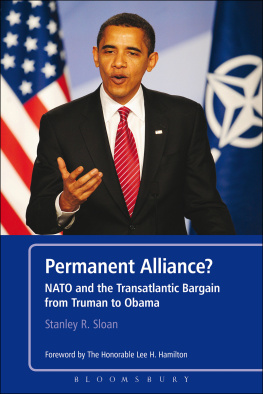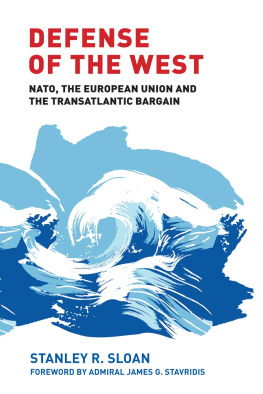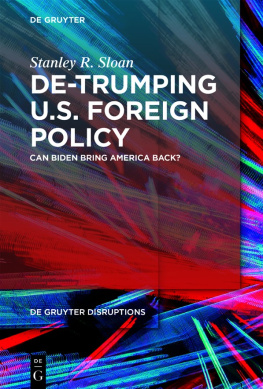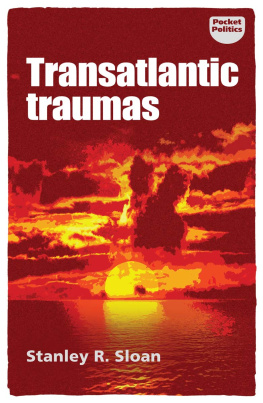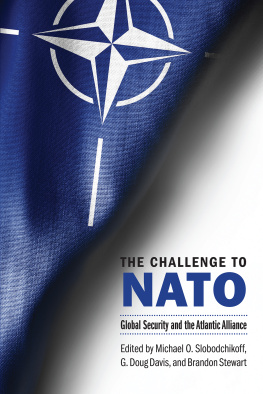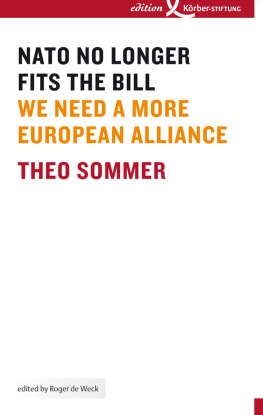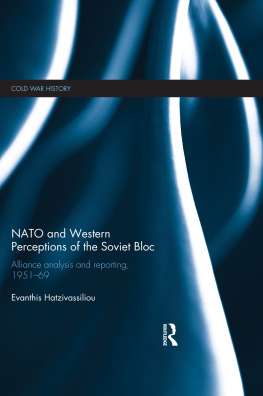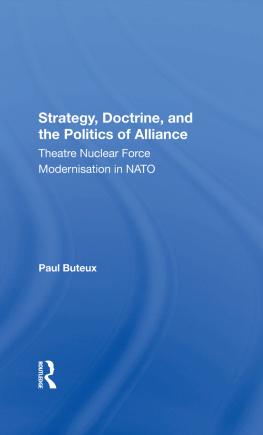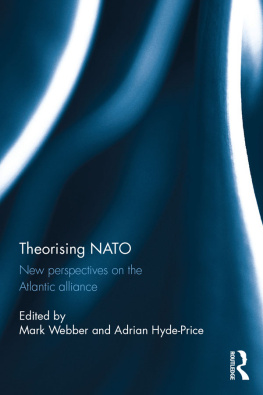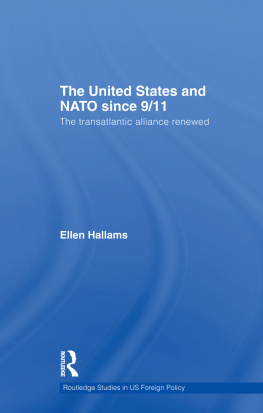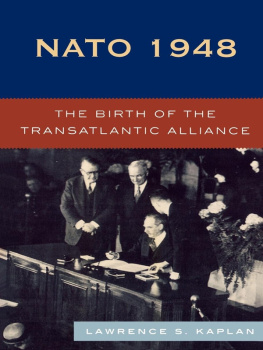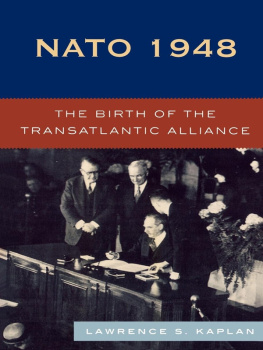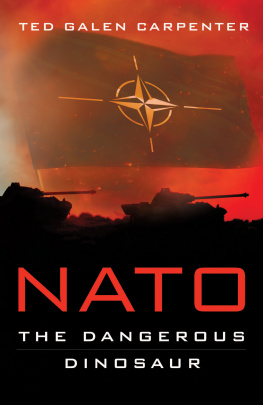Throughout my 34 years as a Member of the US Congress, and particularly during my service as Chair and ranking member of the House Committee on Foreign Affairs, the future of the North Atlantic Treaty Organization was a major priority on Americas foreign policy agenda. It remains so today.
The responsibilities that the alliance has assumed in Afghanistan have put alliance capabilities and political unity to the test. The George W. Bush administration diverted US resources to the war in Iraq, neglecting the fight against Al Qaeda and the Taliban. Some of our allies in Afghanistan have been criticized for risk aversion on the ground and an insufficient commitment to Afghanistans reconstruction. This has created divisions not just between the United States and some European allies but among the Europeans themselvescreating a casualty differential, as Stan Sloan calls it, between those allies who have been willing to serve on the front lines of the conflict and those who have chosen important but less demanding and dangerous tasks.
Today, it has become clear that the goal of ensuring that Afghanistan does not once more become a base for Al Qaeda and other transnational terrorist groups will depend on a successful strategy in both Afghanistan and Pakistan. The challenge has become even more demanding for the United States and its NATO allies.
Many have speculated success or failure in Afghanistan could determine the fate of NATO. While NATOs performance there could affect the way that the allies coordinate action in the future, it would be too simplistic to pin failure on the alliance. Among the foreign powers active in Afghanistan, the United States, which initiated military operations, designed the strategy there, and is NATOs leading power, clearly holds the largest responsibility for the outcome. We have rediscovered the truth of the old adage that Afghanistan is easy to invade but difficult to pacify.
This, however, does not absolve the international community of responsibility for Afghanistans future. The entire international community would suffer a defeat if the outcome in Afghanistan were to leave a vacuum that once again could be filled by extremist forces aiming to attack the United States and its allies around the world.
And this brings me back to the question of what the transatlantic relationship is all about. As this interpretive history of the alliance makes clear, NATO is about far more than military operations. In 1949, the United States and the West European democracies faced a real and imminent threat from the Soviet Union. Yet the North Atlantic Treaty names no enemy. It simply declares what values the signatories considered important and the interests they deemed worthy of defense. The preamble to the North Atlantic Treaty says it all. The allies affirmed that They are determined to safeguard the freedom, common heritage and civilization of their peoples, founded on the principles of democracy, individual liberty and the rule of law. Those same values continue to sustain our democracy and that of our allies.
Even though the essence of the transatlantic alliance is captured in the preamble to the North Atlantic Treaty, the Atlantic community is a product of a complex set of historical, social, economic, political, and security factors that are reflected in a wide variety of multilateral and bilateral relationships. It has NATO at its security core, but that is only the start. The fact is that, even with all the differences and disagreements that are constantly debated across the Atlantic, neither the United States nor Europe could find more compatible, like-minded partners elsewhere in the world. The transatlantic relationship not only works for the interests of its members, it also often serves the interests of the international community. As we have discovered in recent years, dysfunction in the transatlantic relationship is to nobodys benefit.
The question raised in this volumes title is a provocative one. The transatlantic alliance has been sustained well beyond what anyone might have expected in 1949. Stan Sloan traces the development of this relationship, and skillfully recounts its ups and downs and the reasons for both the failures and successes of transatlantic cooperation.
The bottom line is that, particularly in democratic states, international commitments and responsibilitieslike membership in NATOmust be revalidated by each generation of leaders and opinion-makers. New generations of American and Canadian leaders will have to be convinced that transatlantic cooperation should remain a priority. Their counterparts in Europe will have to decide whether or not cooperation with the United States and Canada still serves their vital interests.
The process of reaffirming such commitments will not happen without changes to the way things are done. The alliance has changed constantly since 1949, adapting to new international circumstances and evolving relationships among allies and inside the political systems of the member democracies. That process of change must continue. It may mean that NATO will look different down the road. It may mean that cooperation among the transatlantic allies will be enhanced, perhaps along the lines suggested in this book.
In any case, the requirement for revalidation and adaptation is what makes this book so valuable. Written in an elegant and accessible style, Stan Sloan tells the story of this alliance and examines its prospective future. Whether or not this is a permanent alliance, it clearly is a persistent one, and one with a rationale rooted in the values and interests that it represents and defends.
Honorable Lee H. Hamilton
President and Director, Woodrow Wilson Center for Scholars
Vice-Chair, National Commission on Terrorist Attacks
upon the United States
Thinkers, researchers and writers all stand on the shoulders of those who have come before us. We learn from our predecessors and contemporaries alike, and try to add something worthwhile to the foundations already established. When in 1985 I published the first in a series of books on NATO I adopted the term transatlantic bargain from the man who first developed the concept. Ambassador Harlan Cleveland passed away in 2008, but the idea that the transatlantic bargain is a deal among the Europeans and between Europe and North America, remains a helpful prism through which to see Euro-Atlantic relations.
In 1985, I suggested that there was another partner to the bargain: the US Congress. From the beginning, the powerful American legislative body has played a major role in shaping, as well as critiquing, the deal. The roles played by the US House and Senate are indicative of the fact that the bargain is one made among states with democratic systems that respect individual liberty and the rule of law. As a result, the bargain is by no means static. Changes in the deal over the years have been validated by successive generations of leaders in the United States, Canada, and Europe, and will continue to require such validation.
The twists and turns of transatlantic relations have been traced and dissected by many commentators, historians and political scientists. However, at least for me, Lawrence S. Kaplan stands head and shoulders above the rest. Larry is widely regarded as NATOs leading historian, and I am privileged to know him as a friend and to have benefitted greatly from his guidance and encouragement over the years.


